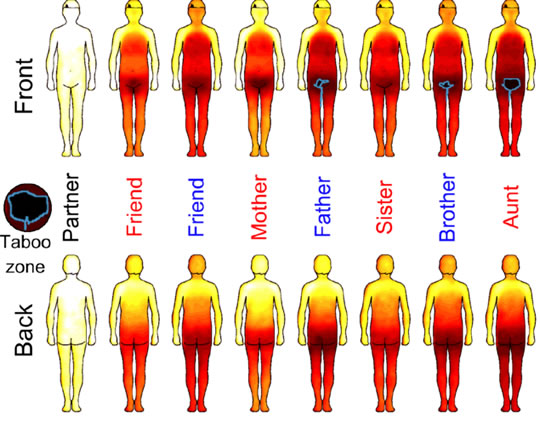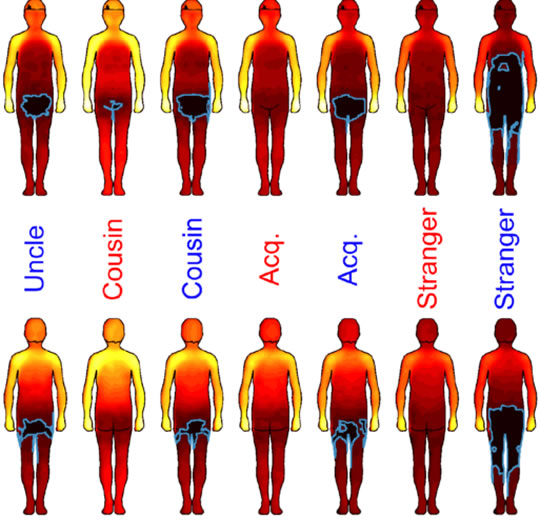Where people do and don’t like to be touched, according to social relationship.
People are surprisingly reticent about being touched socially, a new study finds.
While social kissing has become fashionable, people still recoil at high levels of intimacy from a stranger.
The study asked over 1,300 people from Finland, England, Italy, France and Russia where different people could touch them, depending on the relationship.
Here are the results, with lighter areas being those which are acceptable for a person with that relationship to touch.
Where there are differences between men and women, the blue refers to men and the red to women.
Here are the body maps for more distant social relationships:
Ms Juulia Suvilehto, the study’s first author, said:
“Our findings indicate that touching is an important means of maintaining social relationships.
The bodily maps of touch were closely associated with the pleasure caused by touching.
The greater the pleasure caused by touching a specific area of the body, the more selectively we allow others to touch it.”
Few major differences were seen in the types of social touching allowed between the different cultures.
Professor Lauri Nummenmaa, one of the study’s authors, said:
‘The results emphasise the importance of non-verbal communication in social relationships.
Social relationships are important for well-being throughout peoples’ life, and their lack poses a significant psychological and somatic health risk.
Our results help to understand the mechanisms related to maintaining social relationships and the associated disorders
The study was published in the journal PNAS (Suvilehto et al., 2015).
Handshake image from Shutterstock



